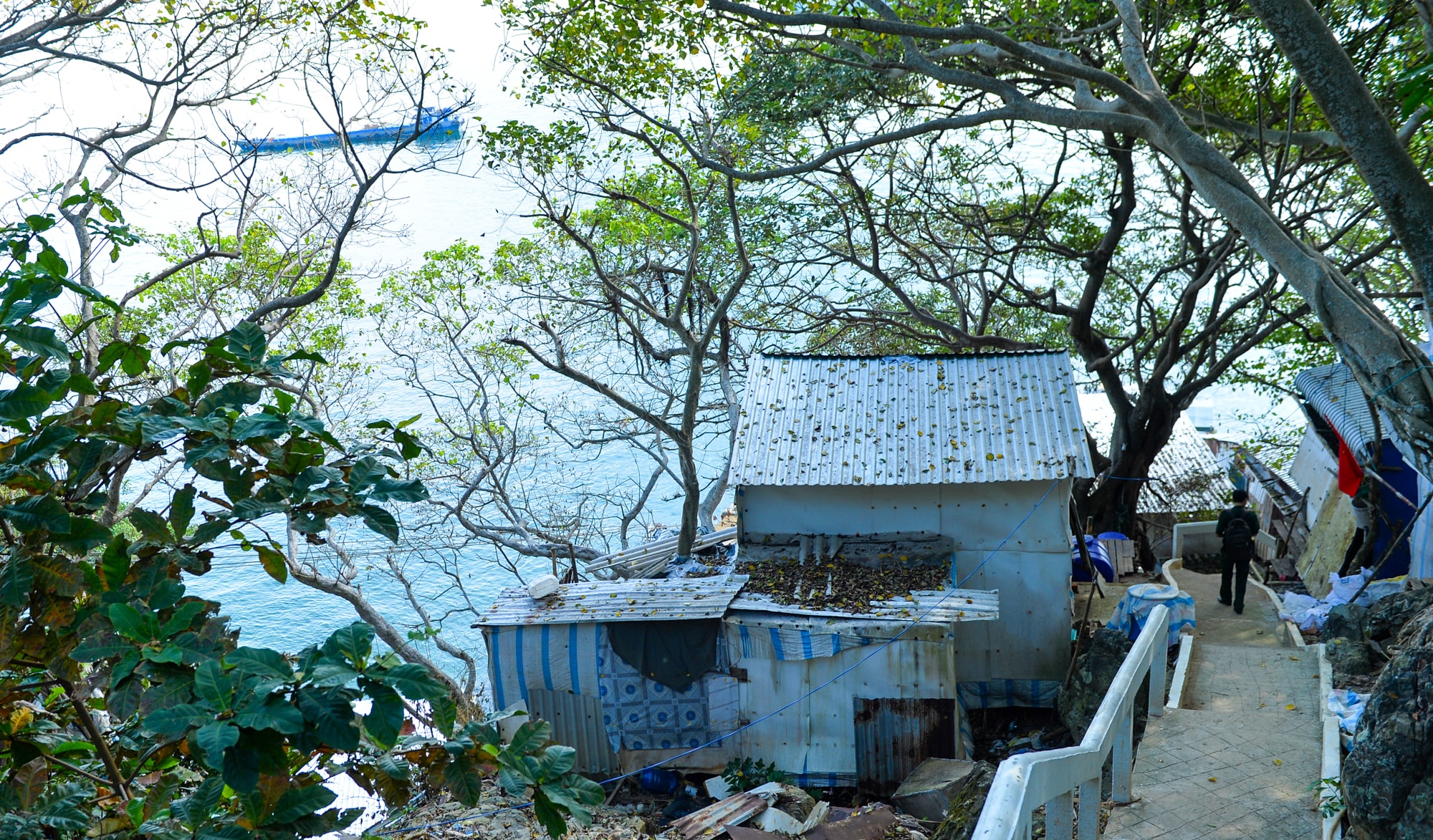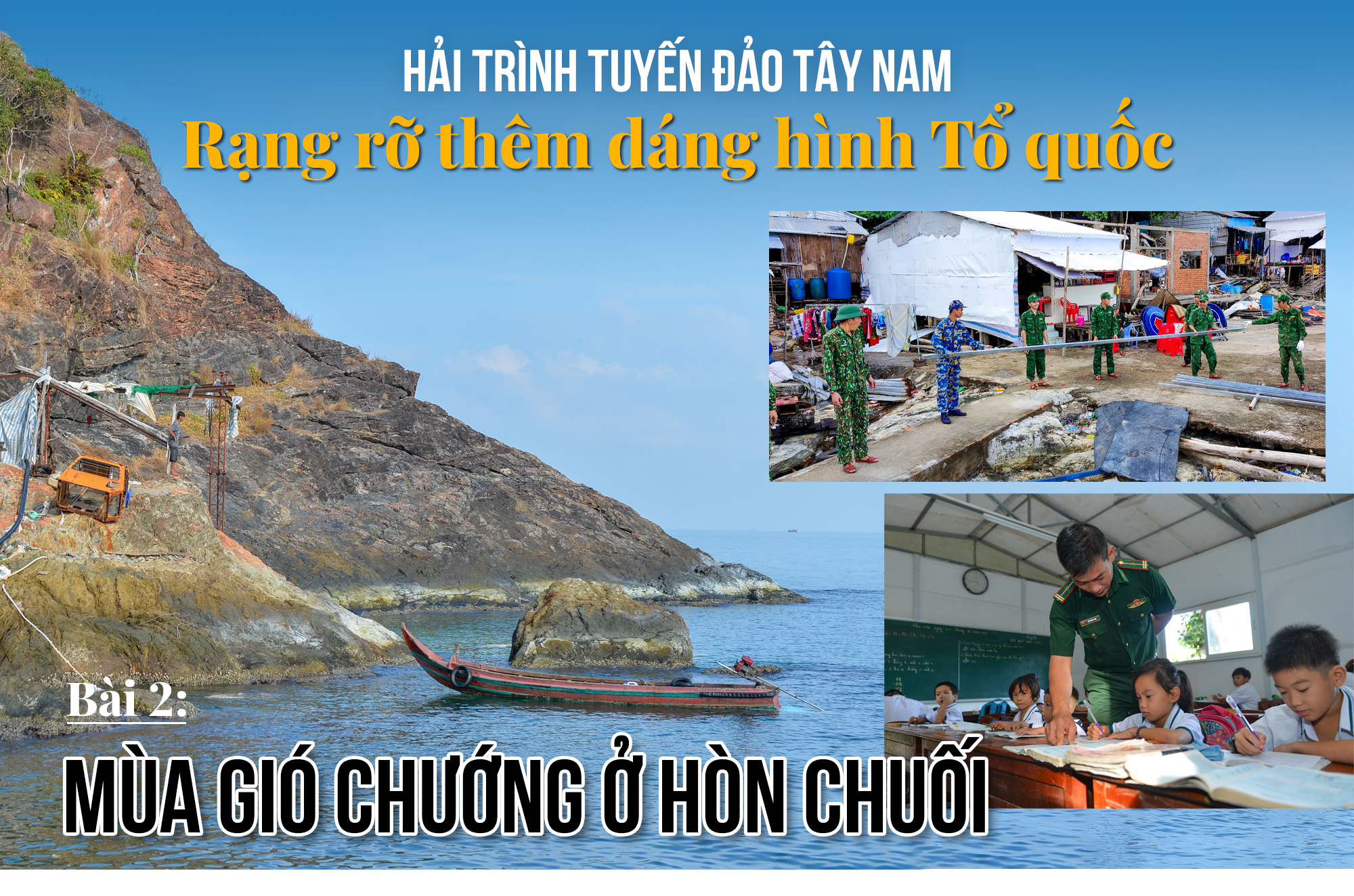


17 nautical miles west of the mainland, Hon Chuoi Island stands alone in the middle of the ocean, with its wild and mysterious features of steep cliffs and dense primeval forests. The island stands tall like a giant blue whale rising above the waves. Hon Chuoi Island has a complex terrain, with a high slope. The climate here is very harsh, with little rain and a lot of sunshine, with two distinct wind seasons. Hon Chuoi is an inhabited island with 68 households and more than 200 people. People make a living mainly by cage fish farming and seafood fishing.
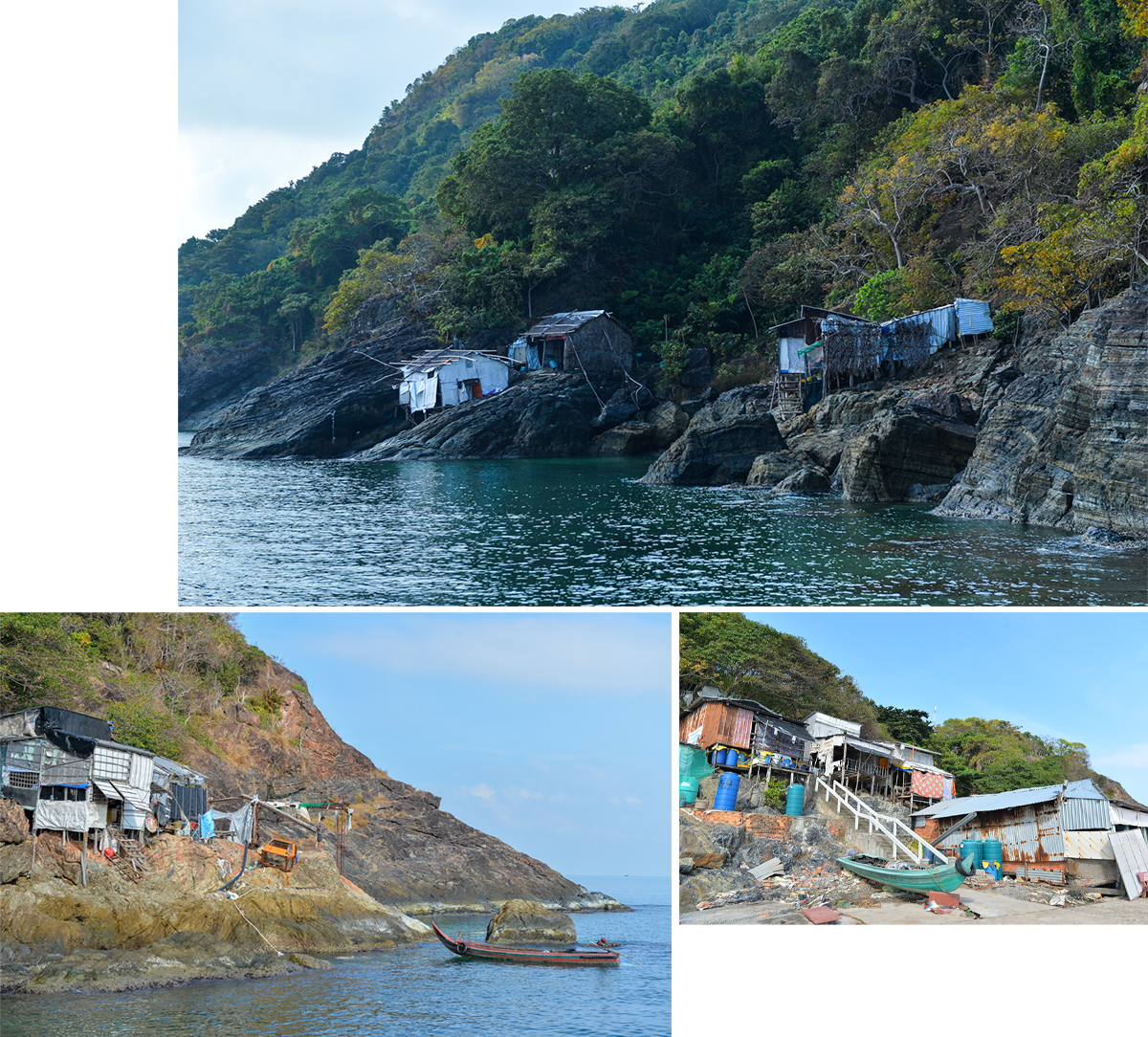
In Hon Chuoi, there are 3 capes: Ganh Nam, Ganh Chuong and Ganh Nom. From September to March of the lunar calendar every year, people live in Ganh Nam to avoid the monsoon wind. On the contrary, from October to February of the following year, people move to Ganh Chuong to avoid the southwest monsoon wind. The time to move is at the change of seasons, when the two winds have not yet risen, and both sides are calm. Hon Chuoi has no streams, the problem of fresh water here is very difficult, a big challenge for the people on the island.
There are 3 military units stationed on the island: Hon Chuoi Lighthouse Station, Radar Station 615 (Radar Battalion 551, Naval Region 5) and Border Guard Station 704 (Border Guard Command of Ca Mau Province). The army and people on the island always stand side by side to protect the Fatherland. They come here and bring their youth and strength to the island. Thanks to that, every inch of our ancestors' land, the fence of the Southwest region of the Fatherland, is preserved and protected.
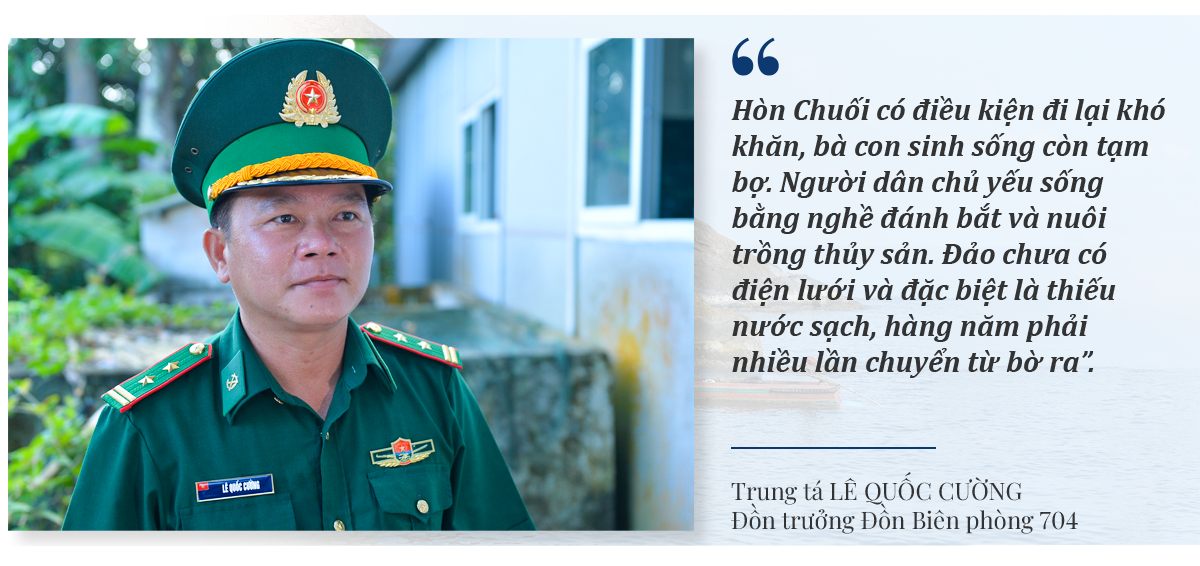
Lieutenant Colonel Le Quoc Cuong - Head of Border Guard Station 704 said: "Hon Chuoi has difficult travel conditions, people live in makeshift houses. People mainly live by fishing and aquaculture. The island does not have grid electricity and especially lacks clean water, so every year they have to move from the shore many times. In the rainy season, there is water but no electricity, and in the dry season, there is electricity but there is a lack of water. Because the solar power system cannot be used in the rainy season, the station has to run on a generator. Every night, the generator is only run from 7-9 pm, for the unit to study and work. In addition, there are many thunderstorms on the island, which often damage the equipment."
Despite the difficult life; complex terrain and natural climate conditions, units on Hon Chuoi Island always uphold the spirit of combat readiness, closely coordinate with local forces to grasp the situation in the air and at sea, promptly notify and report to help commanders at all levels not be passive or surprised by situations...
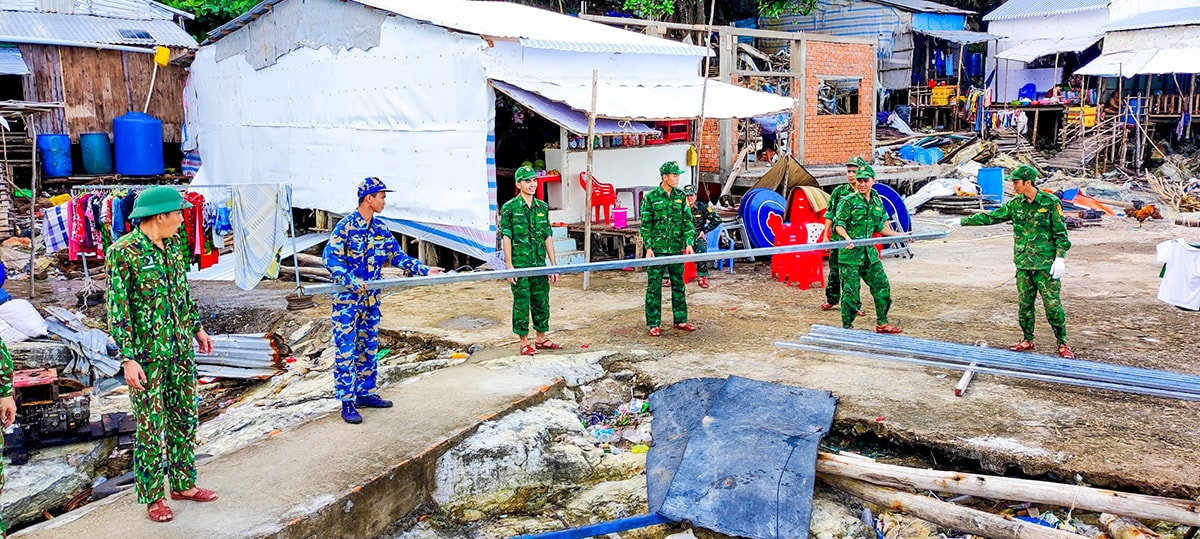
Overcoming countless difficulties and shortages of officers and soldiers on the island, they have done a good job of mass mobilization, mobilizing people to implement the Party and State's policies and guidelines, helping people move when the seasons change, and preventing storms. For example, to improve the lives of people on the island, soldiers have guided people to implement a model of raising cobia in cages to increase their income...
Mr. Le Van Vu - a resident on Hon Chuoi Island said: "It's so difficult on the shore that I came here to build a fishing shack to make a living, but after working all year, I saved a little money and had to use it to repair my house every time I moved. Luckily, thanks to the help of the Border Guard Station and Radar Station, it's been less difficult. In recent years, they have given me fish fry and taught me how to raise cobia, so life has been better."
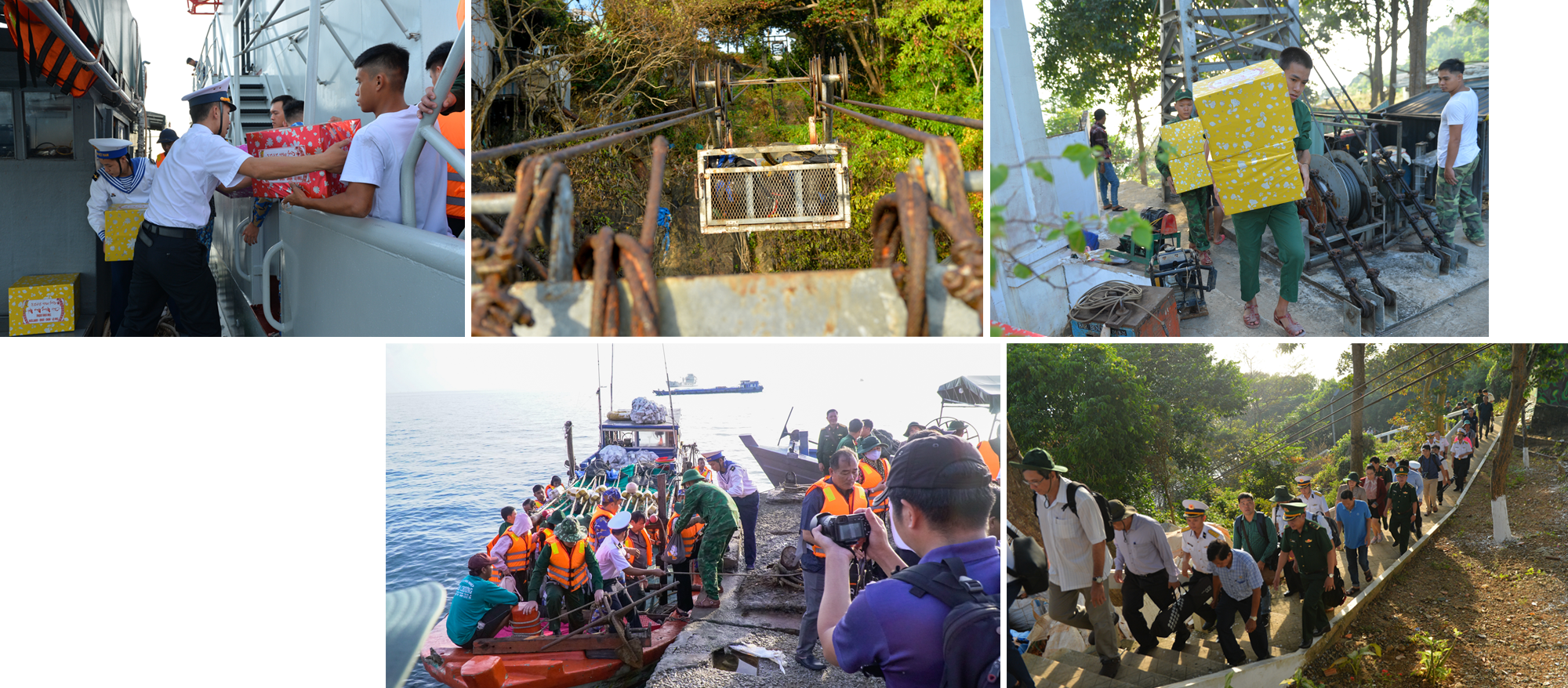

Located not far from the mainland, however, the living and traveling conditions of the army and people on Hon Chuoi Island are still very difficult. Currently, the island does not have a medical station or a national school system. In order for the children on the island to study, the self-governing people's group has coordinated with Border Guard Station 704 and Radar Station 615 to open a charity class. The class is headed by Major Tran Binh Phuc - Deputy Head of the Mass Mobilization Team of Border Guard Station 704 Hon Chuoi... The small class of Major Tran Binh Phuc and his students lies quietly under the canopy of old trees on a mountain on Hon Chuoi Island.
It is known that the idea of establishing the class was proposed by border guards. However, initially, the study was opposed by many parents, because they thought that only knowing how to dive and go to sea would be enough to survive... In the process of persuading families to send their children to school, Major Tran Binh Phuc was repeatedly refused by the people. However, he remained patient and tirelessly persuaded. "If you say yes, even radishes will listen", and then the children's parents agreed to let them go to school.
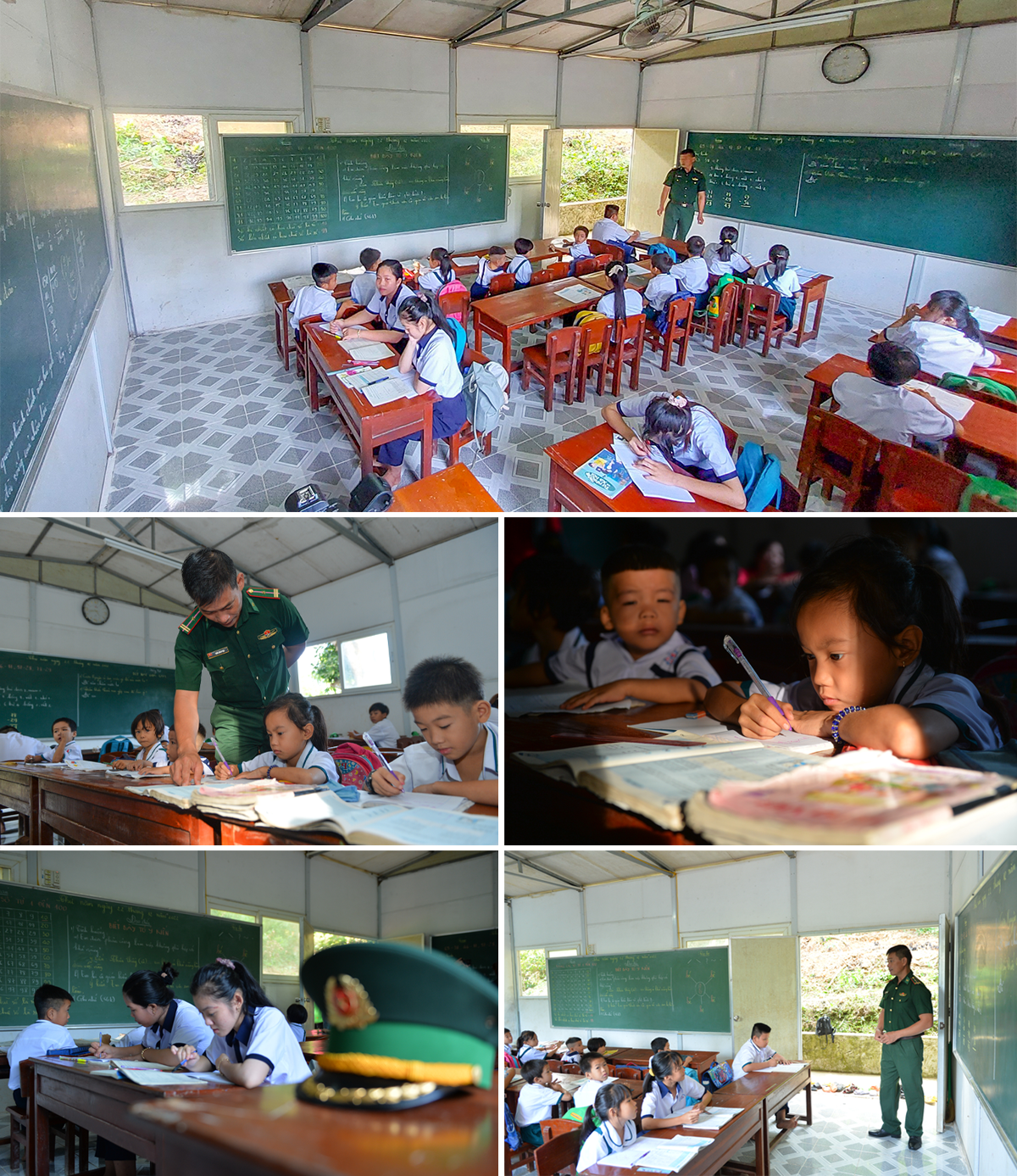
The first day of class had only 5 students of different ages and classes. The classroom was built with wooden planks and some old corrugated iron sheets. Students had to sit on old plastic tables and chairs… On sunny days it was scorching hot, on rainy days teachers and students had to run together.
Major Tran Binh Phuc shared about his “journey” as a teacher: “In the early days, I was like an autistic person. I went to work during the day, prepared lesson plans at night, and then went to class alone… The students here have limited exposure to the outside environment and lack social knowledge, so every time I prepare a lesson plan, I have to choose the most basic, concise, and easy-to-understand things. When teaching in this class, I have to practice in advance, with lively stories to attract the students and avoid boredom.”
Despite the difficulties, teachers and students still overcome them together. Up to now, Mr. Phuc's class has 21 students, including 2 7th graders. "I am not their teacher, but a family member. I consider them as my own children. There is no distance between teachers and students, but is connected by the love of family members" - Mr. Phuc said.
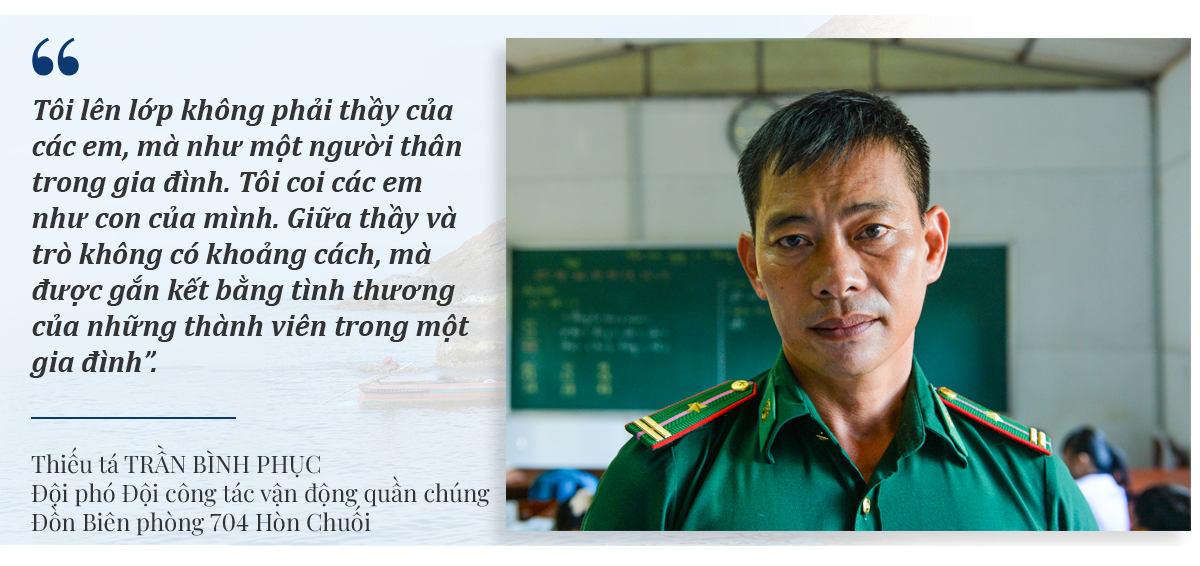
One of Mr. Phuc's students is Nguyen Thi An. An is 10 years old this year but is only in 2nd grade. Born in Song Doc town, An did not go to school but followed her parents' boat here and there. Life on shore was difficult so her parents brought her to the island to make a living. An was persuaded by the Border Guard Station officers to go to school. "I really like going to class because the teacher teaches me math, writing, and reading Vietnamese. The whole class considers the teacher as a family member" - An said.
As for Kim Thi Tram Anh, she studied in Mr. Phuc's class until grade 4 and then went to the mainland to continue her studies. However, because her family was poor, Tram Anh studied on shore until grade 7 and then returned to the island to continue her studies in the charity class.
“Here I am mainly in charge of primary school, but there are two 7th graders who moved from town due to difficult family circumstances so they returned to the island, now I also “take” them. But when it comes to high school, I have to give up, let’s see what happens. Who knows, maybe one day their parents will do well in business and have money, and they will be able to go ashore to continue their studies” – Major Tran Binh Phuc worried.
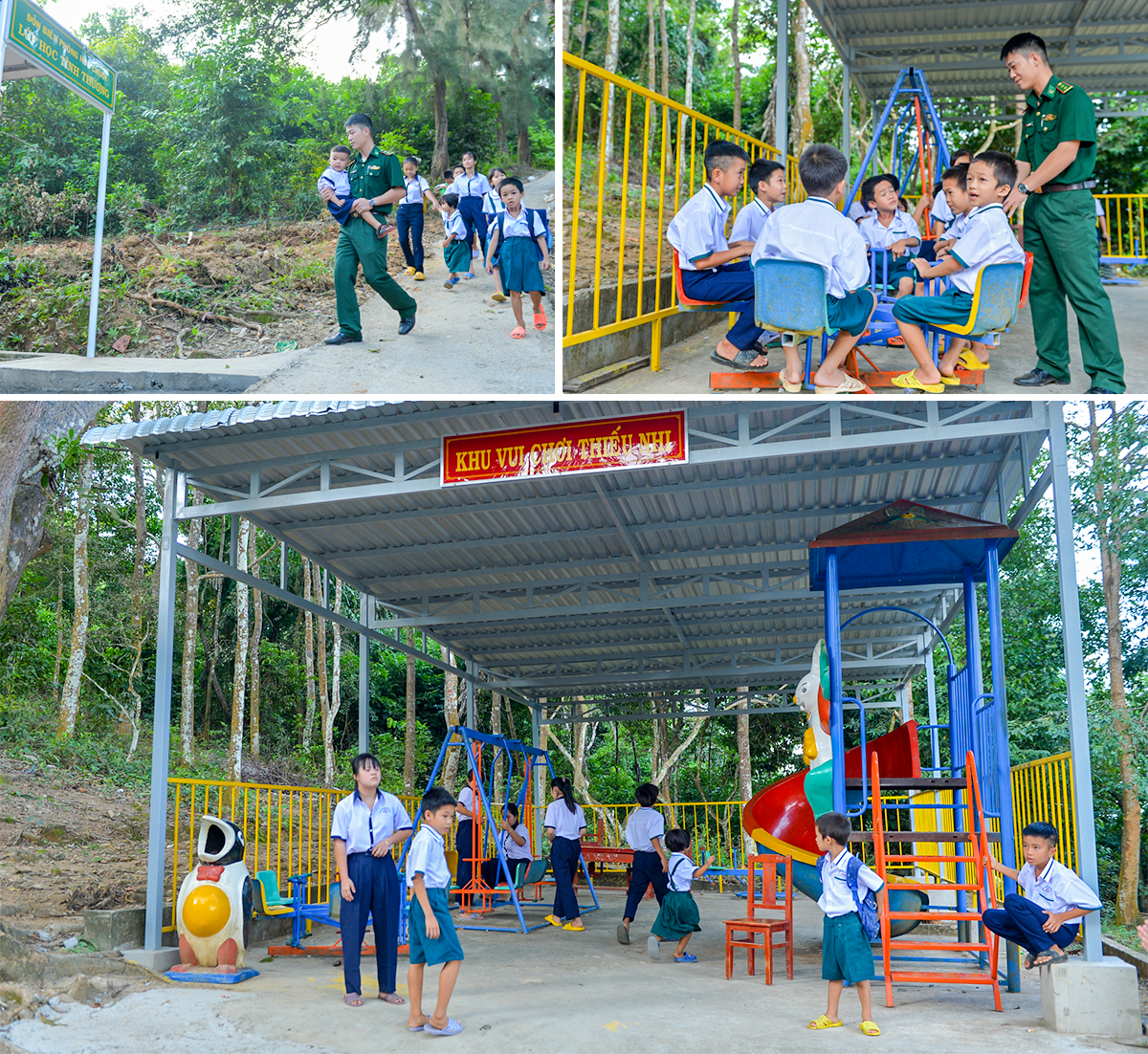
By 2022, 100% of school-age students on Hon Chuoi Island will be able to attend school, read and write, and understand the basic knowledge of the current education program. Some have been sent to the mainland to continue their studies. More happily, some have graduated from university and have stable jobs.
The greatest joy and motivation for Mr. Phuc and the officers and soldiers on the island is to see the children learn to read and write, nurture their dreams, and become useful people for society. Lieutenant Colonel Le Quoc Cuong - Head of Hon Chuoi Border Guard Station said: "Eliminating illiteracy and improving people's knowledge in border areas and islands is a major policy and task that is decisive for the work of protecting national border sovereignty. Therefore, for more than 10 years, Hon Chuoi Border Guard Station has always focused on education, teaching reading and writing, and teaching computers to children on the island. Currently, the charity class led by Major Tran Binh Phuc has been recognized as a school in the education system of Tran Van Thoi district, Ca Mau province."
